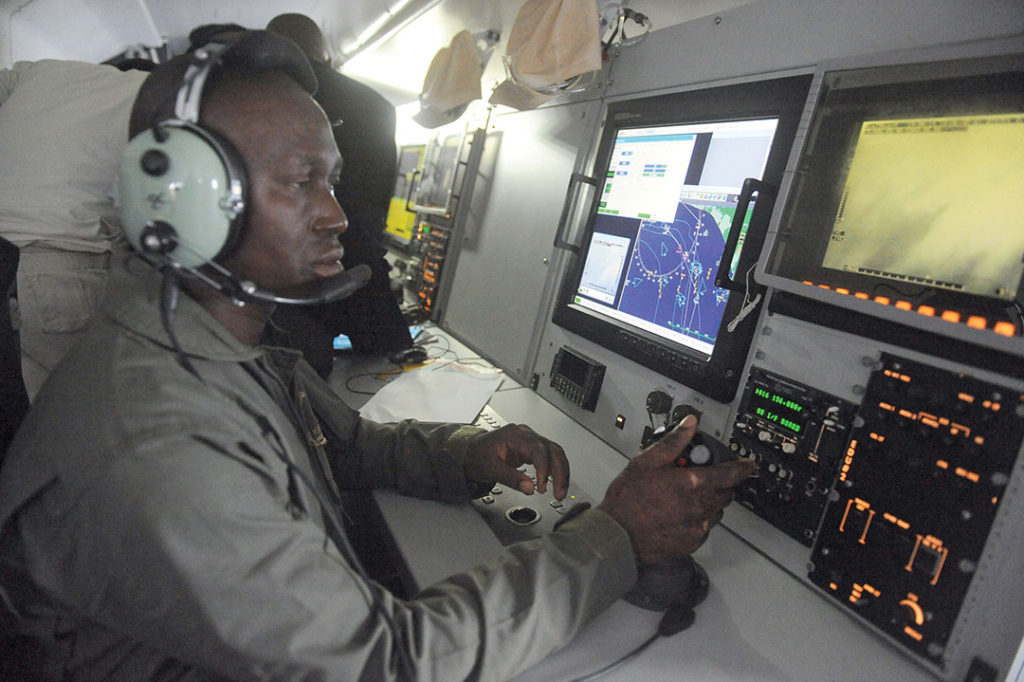
gave the keynote address May 21, 2018, at the First National Tourism Transport Summit and Expo 2018 in Abuja, Nigeria. His remarks have been edited to fit this format.
We are making efforts to tackle piracy, sea robbery and all illegal activities within our maritime domain through the establishment of the Maritime Guard Command with the combined efforts of NIMASA [Nigerian Maritime Administration and Safety Agency], the Nigerian Navy, Nigerian Air Force, Nigerian Police Force, and Nigerian Security and Civil Defence Corps. We are championing the anti-piracy bill before the National Assembly to provide a legal framework for punishing piracy and other maritime crimes. When passed into law, it will ensure adequate sanctions against offenders and act as a deterrent to others. We have also achieved over 85 percent compliance on International Ship and Port Security Code implementation, which ensures that ports and vessels within our maritime domain are protected against any form of terrorist attack.
In the area of maritime safety, NIMASA has installed a satellite surveillance system, a coastal radar system, and a Global Maritime Distress and Safety System. These are electronic and digital facilities that enhance our maritime domain awareness capability.
The agency also is on the verge of acquiring state-of-the-art maritime safety enforcement platforms. Our Deep Blue Scale Up initiative is a technology-equipment-process-based architecture designed to optimize maritime security in Nigeria.
In addition, the agency is building its capacity for search-and-rescue operations with the approval of the minister of transportation to increase the number of search-and-rescue marshals from 100 to 1,000. We are also working on effective regional search-and-rescue coordination. Furthermore, the agency has successfully hosted two Sub-Regional Technical Committee meetings to build a formidable regional network on search and rescue. The regional network has increased our level of alertness, thereby improving our capacity to respond to distress calls, which has ultimately led to a considerable reduction in the cases of piracy along the Gulf of Guinea, making our maritime environment more secure.
In the area of marine pollution prevention, the primary responsibility of the agency is to prevent the pollution of the seas by vessels. The agency has, however, gone a step further to tackle marine pollution from pipeline vandalism and domestic waste dumping into our lagoons, which is now threatening the tourism potential of our coastal waters. Recently, the agency inaugurated a 100-man environmental guard to fight domestic dumping of refuse into lagoons. Measures also have been taken in collaboration with the federal government and the Nigerian Navy to stop the vandalizing of oil pipelines, which is one of the major sources of marine pollution in Nigeria. The oil companies are now to be held strictly responsible for any negligence in the course of exploration of oil that results in the pollution of the seas.
In developing our tourism and transport industry, our watchword should be sustainability. This task cannot be left for government alone, but can only be achieved through collaborative efforts and shared responsibility among government, private organizations and the citizenry. We must create awareness of the importance of the seas and oceans to our lives and the economy. We must let everyone know that the seas provide the fishes we eat, the oil and gas that sustain our economy, and the means of transport for over 95 percent of our international trade. It also contributes immensely to our power generation, the development of the tourism industry, agricultural irrigations and, most important, the moderation of our climate and weather, which makes the environment attractive to tourists.

